
Journal of the Korean Society of Combustion
Scope & Guideline
Transforming Theoretical Insights into Practical Solutions
Introduction
Aims and Scopes
- Combustion Mechanisms and Modeling:
The journal emphasizes the development and application of advanced combustion models, particularly for complex fuel types like ammonia and hydrogen. Researchers employ numerical simulations and machine learning to predict combustion behavior and emissions. - Emission Control and Environmental Impact:
A significant aim is to explore techniques for reducing harmful emissions such as NOx and CO2 from combustion processes. This includes studies on flue gas recirculation and the use of alternative fuels to minimize environmental footprints. - Innovative Fuel Technologies:
The journal highlights research on alternative and zero-carbon fuels, including ammonia and hydrogen. This area focuses on the combustion characteristics, performance, and feasibility of these fuels in existing and new combustion systems. - Combustion Stability and Dynamics:
Research on combustion instability, including thermoacoustic dynamics and flame stability, is a core focus. The journal publishes studies that investigate the factors affecting stability in various combustion configurations, including gas turbines and boilers. - Experimental and Numerical Investigations:
A balanced approach combining experimental studies and numerical simulations is prevalent. The journal encourages comprehensive investigations that validate theoretical models against experimental data.
Trending and Emerging
- Ammonia and Hydrogen as Alternative Fuels:
Research on ammonia and hydrogen combustion is rapidly increasing, driven by the need for carbon-neutral fuel options. The journal showcases studies focused on combustion characteristics, emissions, and the integration of these fuels into existing systems. - Machine Learning and Advanced Modeling Techniques:
There is a growing trend towards the use of machine learning and artificial intelligence to enhance combustion modeling. This approach aims to improve predictive capabilities and optimize combustion processes in real-time. - Combustion Instability and Noise Control:
Emerging research emphasizes understanding and controlling combustion instabilities, particularly in gas turbines. This is critical for enhancing operational efficiency and reducing noise pollution. - Flame Stability in Advanced Combustors:
There is heightened interest in studying flame stability across various combustor designs, including staged and lean-premixed systems. This research is essential for developing more efficient and cleaner combustion technologies. - Integration of Renewable Energy Sources:
The journal is increasingly publishing studies that explore the integration of renewable energy sources with combustion systems, particularly in hybrid setups that aim to enhance overall energy efficiency and sustainability.
Declining or Waning
- Traditional Fossil Fuel Combustion:
Research focusing solely on traditional fossil fuels like diesel and coal combustion has decreased. This shift reflects a growing emphasis on cleaner energy sources and the urgent need for sustainable alternatives. - Basic Combustion Chemistry:
While foundational studies in combustion chemistry are still relevant, there has been a noticeable decline in simplistic approaches lacking integration with advanced modeling or practical applications, as researchers prioritize more complex and applicable studies. - Conventional Engine Performance Studies:
Studies solely focused on the performance of conventional combustion engines, without considering alternative fuels or emissions reduction methods, have waned. The field is moving towards hybrid or alternative fuel systems.
Similar Journals
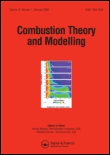
COMBUSTION THEORY AND MODELLING
Unraveling the Complexities of Combustion TheoryCombustion Theory and Modelling is a pivotal journal for researchers and professionals in the fields of chemical engineering, energy technology, and combustion science. Published by Taylor & Francis Ltd, this journal, with an ISSN of 1364-7830 and E-ISSN 1741-3559, provides a platform for disseminating significant advances in our understanding of combustion processes and their applications. With a solid impact factor, as reflected in its Q2 ranking across multiple categories including Chemical Engineering, Energy Engineering, and Modeling and Simulation, it serves not only to enhance theoretical knowledge but also to bridge the gap between theory and practical applications. The journal spans a wide timeline from 1997 to 2024, ensuring that it covers both foundational studies and cutting-edge research. Situated in the UK, the journal actively invites submissions that contribute to the evolving landscape of combustion science, making it an essential resource for academics, industry professionals, and students keen on exploring the dynamics of energy and fuel technologies.
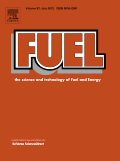
Fuel
Unleashing Potential in Chemical Engineering and EnergyFuel is a premier international journal published by Elsevier Science Ltd, showcasing critical advancements and insights in the fields of chemical engineering, energy engineering, power technology, and organic chemistry. With a significant history dating back to 1922 and continuous publication from 1970 to 2025, Fuel holds an impressive position in the academic community, reflected in its top-tier rankings—Q1 in multiple categories including Fuel Technology and Chemical Engineering for the year 2023. This journal is dedicated to exploring innovative research and application of fuel technologies, driving forward the dialogue on sustainable energy solutions. Researchers and professionals alike will find Fuel to be an essential resource, providing access to high-impact articles that contribute to advancements in methodologies and applications, while navigating the complexities of global energy challenges.
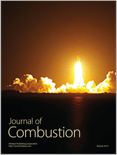
Journal of Combustion
Connecting Ideas, Fueling ProgressJournal of Combustion is a premier academic journal dedicated to the field of combustion science and technology, published by HINDAWI LTD. With an ISSN of 2090-1968 and an E-ISSN of 2090-1976, the journal has been an open-access platform since 2008, ensuring that cutting-edge research is accessible to all. Based in the United States at Adam House, 3rd Flr, 1 Fitzroy Sq, London W1T 5HF, England, the journal publishes articles spanning various relevant disciplines, contributing to knowledge in Chemical Engineering, Fuel Technology, and Energy Engineering. As of 2023, it ranks in the Q3 quartile in Chemical Engineering (miscellaneous) and Fuel Technology, and in Q4 in Condensed Matter Physics and Energy Engineering and Power Technology, highlighting its growing impact and relevance in these fields. Researchers will find valuable insights as the journal converges its findings from 2010 to 2024. With a focus on promoting innovative approaches and exploring new frontiers in combustion research, the Journal of Combustion continues to be an essential resource for academics, professionals, and students committed to advancing the understanding and application of combustion processes.
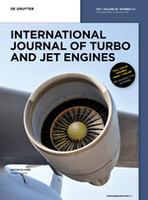
INTERNATIONAL JOURNAL OF TURBO & JET-ENGINES
Fueling Progress in Aerospace Engineering DiscoursesINTERNATIONAL JOURNAL OF TURBO & JET-ENGINES, published by WALTER DE GRUYTER GMBH, is an esteemed academic journal dedicated to the field of aerospace engineering, specifically focusing on the innovative development and application of turbo and jet engine technologies. Established in 1985, this journal has maintained its commitment to advancing scholarly research and discussion, attracting contributions from leading experts across the globe. With a Scopus rank of #91 out of 153 in the field of Aerospace Engineering, placing it in the 40th percentile and categorized in Q3 for 2023, the journal provides a vital platform for disseminating high-quality research findings and insights into evolving engine technologies. Although it follows a subscription model, its rigorous peer-review process ensures that published articles contribute significantly to the body of knowledge in aerospace engineering and related disciplines. For researchers, professionals, and students alike, the INTERNATIONAL JOURNAL OF TURBO & JET-ENGINES stands as a crucial resource for staying updated on the latest advances and trends in turbojet and turbofan systems.
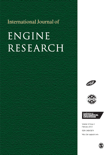
International Journal of Engine Research
Harnessing Research for Engineering BreakthroughsWelcome to the International Journal of Engine Research, an esteemed publication dedicated to advancing the fields of Aerospace Engineering, Automotive Engineering, Mechanical Engineering, and Ocean Engineering. Published by SAGE Publications Ltd and based in the United Kingdom, this journal has earned a prestigious reputation, consistently ranking in the Q1 quartile in several engineering categories as of 2023. The journal's impact is evident through its high Scopus rankings, positioning it within the top 25% of global research in Aerospace and Automotive engineering, and within the top 20% for Mechanical engineering. With a commitment to publishing rigorous, peer-reviewed research from 2000 to 2024, the International Journal of Engine Research plays a vital role in fostering innovation and collaboration within the engineering community. Although this journal does not offer open access, it remains a critical resource for researchers, industry professionals, and students striving to deepen their understanding in these dynamic fields.
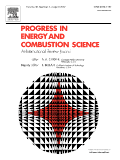
PROGRESS IN ENERGY AND COMBUSTION SCIENCE
Unleashing potential through rigorous scientific inquiry.PROGRESS IN ENERGY AND COMBUSTION SCIENCE, published by PERGAMON-ELSEVIER SCIENCE LTD, stands as a premier journal in the realms of energy engineering and fuel technology, with an impressive impact factor and recognition across multiple scientific disciplinary matrices. Since its inception in 1975 and continuing through 2024, this esteemed publication has contributed significantly to the advancement of knowledge in energy resources, combustion processes, and their applications in modern technology. With a robust ranking of Q1 in key categories such as Chemical Engineering, Energy Engineering and Power Technology, and Fuel Technology, the journal consistently showcases high-quality research that influences both academia and industry. Researchers, professionals, and students benefit from its rigorous peer-reviewed articles, which foster a deeper understanding of energy-related challenges and innovations. Although it is not an Open Access outlet, its relevance and contribution to the scientific community are undeniable, making it a vital resource for anyone engaged in the pursuit of sustainable energy solutions.

Applications in Energy and Combustion Science
Fueling Knowledge in Energy and Combustion ScienceWelcome to Applications in Energy and Combustion Science, a premier open-access journal published by ELSEVIER that has been at the forefront of research since 2020. With the ISSN 2666-352X, this journal is dedicated to advancing the knowledge and application of energy technologies and combustion systems, reflecting a strong commitment to the evolving demands of the field. Based in the United Kingdom and recognized for its robust contributions, it has achieved noteworthy status in the 2023 rankings: a Q1 classification in both Chemical Engineering (miscellaneous) and Fuel Technology, alongside a Q2 standing in Energy (miscellaneous). Researchers will find it a significant platform, with Scopus rankings placing it among the top tiers in various categories. This journal offers an essential resource for professionals and students aiming to stay abreast of innovative developments and applications in the critical areas of energy and combustion, ensuring broad accessibility and dissemination of research findings.
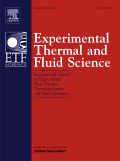
EXPERIMENTAL THERMAL AND FLUID SCIENCE
Exploring the dynamics of heat and fluid with cutting-edge studies.EXPERIMENTAL THERMAL AND FLUID SCIENCE is a prestigious academic journal published by Elsevier Science Inc, dedicated to advancing the fields of thermal and fluid sciences. With a strong focus on innovative experimental research, it plays a crucial role in disseminating new knowledge and techniques across multiple domains, including Aerospace Engineering, Chemical Engineering, Fluid Flow and Transfer Processes, Mechanical Engineering, and Nuclear Engineering. Holding a notable impact factor and ranking in the Q1 quartile across these categories since 2023, the journal is recognized for its high-quality contributions, which appeal to a diverse audience of researchers, industry professionals, and students alike. Additionally, with dedicated coverage from its inception in 1988 to projections extending through 2025, EXPERIMENTAL THERMAL AND FLUID SCIENCE provides a vital platform for sharing advancements in experimental techniques and findings that shape the future of engineering and applied sciences.

Russian Journal of Physical Chemistry B
Exploring the depths of theoretical innovation.Russian Journal of Physical Chemistry B, published by MAIK NAUKA/INTERPERIODICA/SPRINGER, serves as a vital platform for the dissemination of novel research in the field of physical and theoretical chemistry. With an ISSN of 1990-7931 and an E-ISSN of 1990-7923, this journal has established itself in the academic landscape since its inception in 2008, continuing to publish groundbreaking studies that push the boundaries of chemical research through 2024. Ranked in the Q3 category in Physical and Theoretical Chemistry, it holds a Scopus Rank of 139/189, showcasing its significance despite a competitive field. The journal does not currently offer open access but remains dedicated to advancing knowledge and innovation within its niche, fostering collaboration among chemists, researchers, and educators. As a valuable resource for those seeking to stay abreast of the latest developments and theoretical advancements, the Russian Journal of Physical Chemistry B is an excellent choice for professionals and students alike.
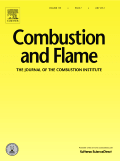
Combustion and Flame
Unraveling the Science Behind CombustionCombustion and Flame is a premier academic journal published by Elsevier Science Inc, dedicated to advancing the field of combustion science. Since its inception in 1957, this journal has consistently provided a platform for rigorous research and groundbreaking discoveries in the realms of Chemical Engineering, Chemistry, and Energy Engineering, illustrating a significant Q1 ranking across multiple categories, including Fuel Technology and Physics. With an impressive Scopus ranking, comprising the top 10% in fields such as General Physics and Astronomy, and General Chemical Engineering, Combustion and Flame serves as a critical resource for researchers, professionals, and students aiming to explore the complexities of combustion phenomena and their applications. Although it does not offer open access, the journal is known for its comprehensive articles and innovative research papers, fostering scholarly dialogue and the development of emerging technologies. The journal aims to connect researchers globally, ensuring that important findings are shared and disseminated effectively.